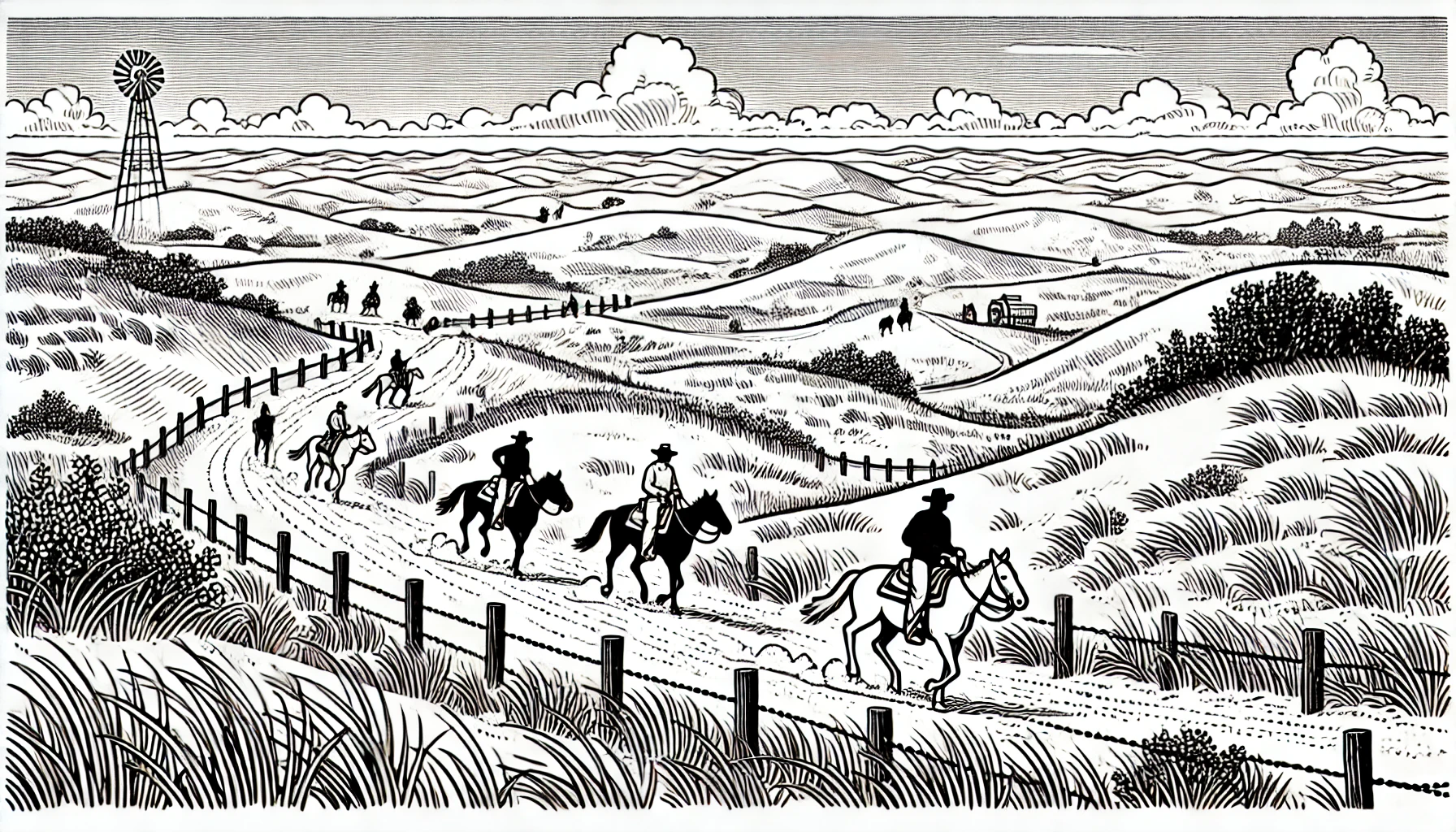Exploring Fontenelle Forest Nature Center

Located in Bellevue, Nebraska, the Fontenelle Forest Nature Center is a 1,100-acre nature preserve, which serves as a model for prairie restoration and conservation efforts in the region. Operated by the Fontenelle Nature Association, the center offers visitors a unique opportunity to experience the beauty and diversity of Nebraska's prairies and forests.
One notable feature of the Fontenelle Forest Nature Center is its woodland forest ecosystem, which covers approximately 1,000 acres of the preserve. This forest is dominated by deciduous tree species such as American elm, green ash, and cottonwood. The woodland forest provides habitat for a diverse range of plant and animal species, including white-tailed deer, wild turkeys, and over 100 species of birds. Visitors to the center can explore the woodland forest via a 19-mile network of trails that crisscross the preserve.
In addition to its woodland forest ecosystem, the Fontenelle Forest Nature Center is also home to a restored prairie ecosystem. This 100-acre prairie restoration project began in the 1970s and has involved the reintroduction of native grass and wildflower species, as well as the management of invasive species such as eastern red cedar. The restored prairie provides habitat for a range of plant and animal species that are adapted to life in a prairie ecosystem. Visitors to the center can explore the restored prairie via a series of trails and observation decks that offer stunning views of the surrounding landscape.
The Fontenelle Forest Nature Center also offers a range of educational programs and activities for visitors of all ages. These programs include guided nature walks, bird-watching tours, and nature-based educational programs for school children. Visitors to the center can also explore the exhibits and displays at the center's Education Center, which provide insight into the natural and cultural history of the region.
One notable example of the conservation work being done at the Fontenelle Forest Nature Center is the reintroduction of the monarch butterfly to the area. The center has established a monarch waystation, which provides habitat for monarch butterflies during their migrations. This project involves the planting of milkweed and nectar-rich plants, which provide food and shelter for the monarch butterflies. This project has been highly successful, with numerous monarch sightings reported by visitors to the center.
The Fontenelle Forest Nature Center is an important conservation area for a wide range of plant and animal species. Its restored prairie and woodland forest ecosystems provide habitat for numerous species that are rare or endangered in the region. The center's conservation efforts have also helped to raise awareness about the importance of conservation and sustainability in the region.
The Fontenelle Forest Nature Center is an ideal destination for those interested in learning about Nebraska's natural history and conservation efforts. Its unique combination of woodland forest and prairie ecosystems, as well as its diverse range of plant and animal species, make it a fascinating place to explore. Visitors to the center can learn about the importance of conservation and sustainability, and gain a deeper appreciation for the natural world.
One notable feature of the Fontenelle Forest Nature Center is its woodland forest ecosystem, which covers approximately 1,000 acres of the preserve. This forest is dominated by deciduous tree species such as American elm, green ash, and cottonwood. The woodland forest provides habitat for a diverse range of plant and animal species, including white-tailed deer, wild turkeys, and over 100 species of birds. Visitors to the center can explore the woodland forest via a 19-mile network of trails that crisscross the preserve.
In addition to its woodland forest ecosystem, the Fontenelle Forest Nature Center is also home to a restored prairie ecosystem. This 100-acre prairie restoration project began in the 1970s and has involved the reintroduction of native grass and wildflower species, as well as the management of invasive species such as eastern red cedar. The restored prairie provides habitat for a range of plant and animal species that are adapted to life in a prairie ecosystem. Visitors to the center can explore the restored prairie via a series of trails and observation decks that offer stunning views of the surrounding landscape.
The Fontenelle Forest Nature Center also offers a range of educational programs and activities for visitors of all ages. These programs include guided nature walks, bird-watching tours, and nature-based educational programs for school children. Visitors to the center can also explore the exhibits and displays at the center's Education Center, which provide insight into the natural and cultural history of the region.
One notable example of the conservation work being done at the Fontenelle Forest Nature Center is the reintroduction of the monarch butterfly to the area. The center has established a monarch waystation, which provides habitat for monarch butterflies during their migrations. This project involves the planting of milkweed and nectar-rich plants, which provide food and shelter for the monarch butterflies. This project has been highly successful, with numerous monarch sightings reported by visitors to the center.
The Fontenelle Forest Nature Center is an important conservation area for a wide range of plant and animal species. Its restored prairie and woodland forest ecosystems provide habitat for numerous species that are rare or endangered in the region. The center's conservation efforts have also helped to raise awareness about the importance of conservation and sustainability in the region.
The Fontenelle Forest Nature Center is an ideal destination for those interested in learning about Nebraska's natural history and conservation efforts. Its unique combination of woodland forest and prairie ecosystems, as well as its diverse range of plant and animal species, make it a fascinating place to explore. Visitors to the center can learn about the importance of conservation and sustainability, and gain a deeper appreciation for the natural world.
